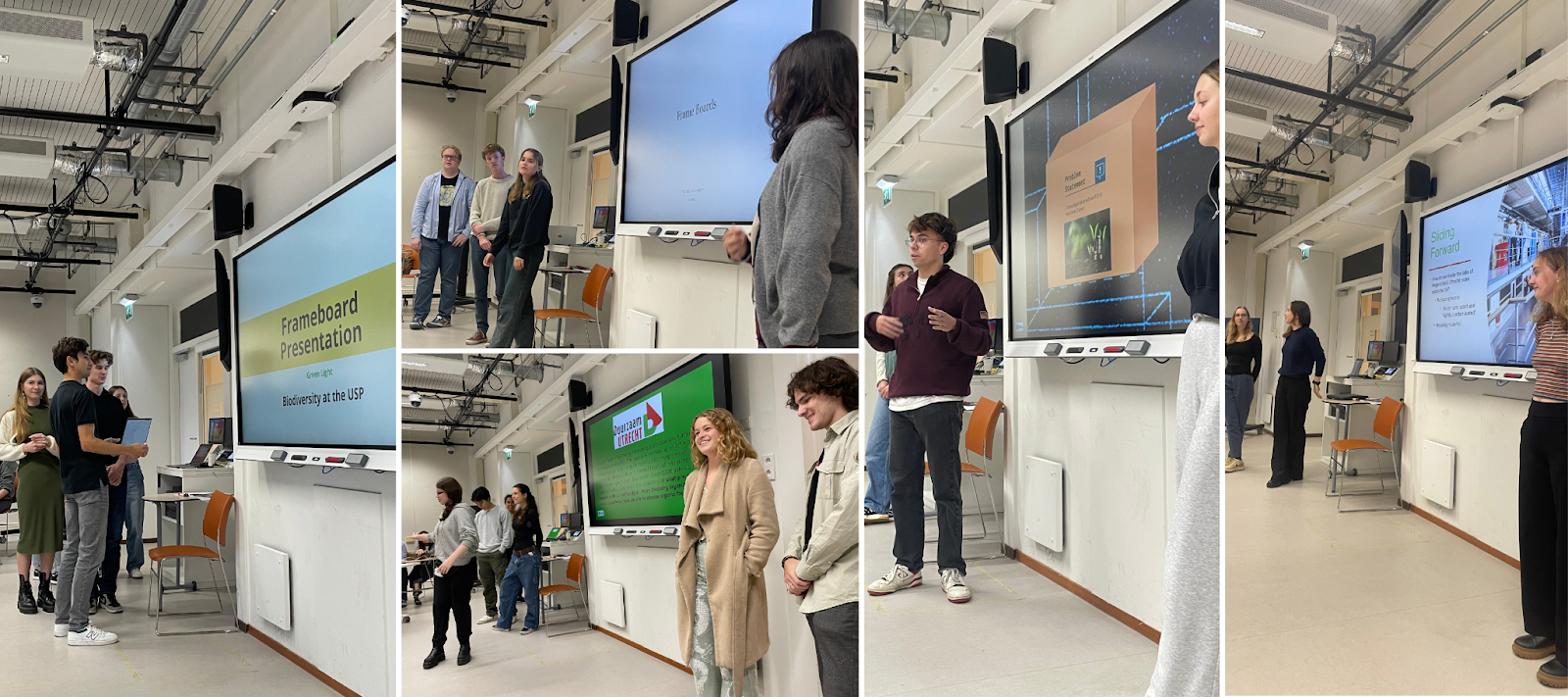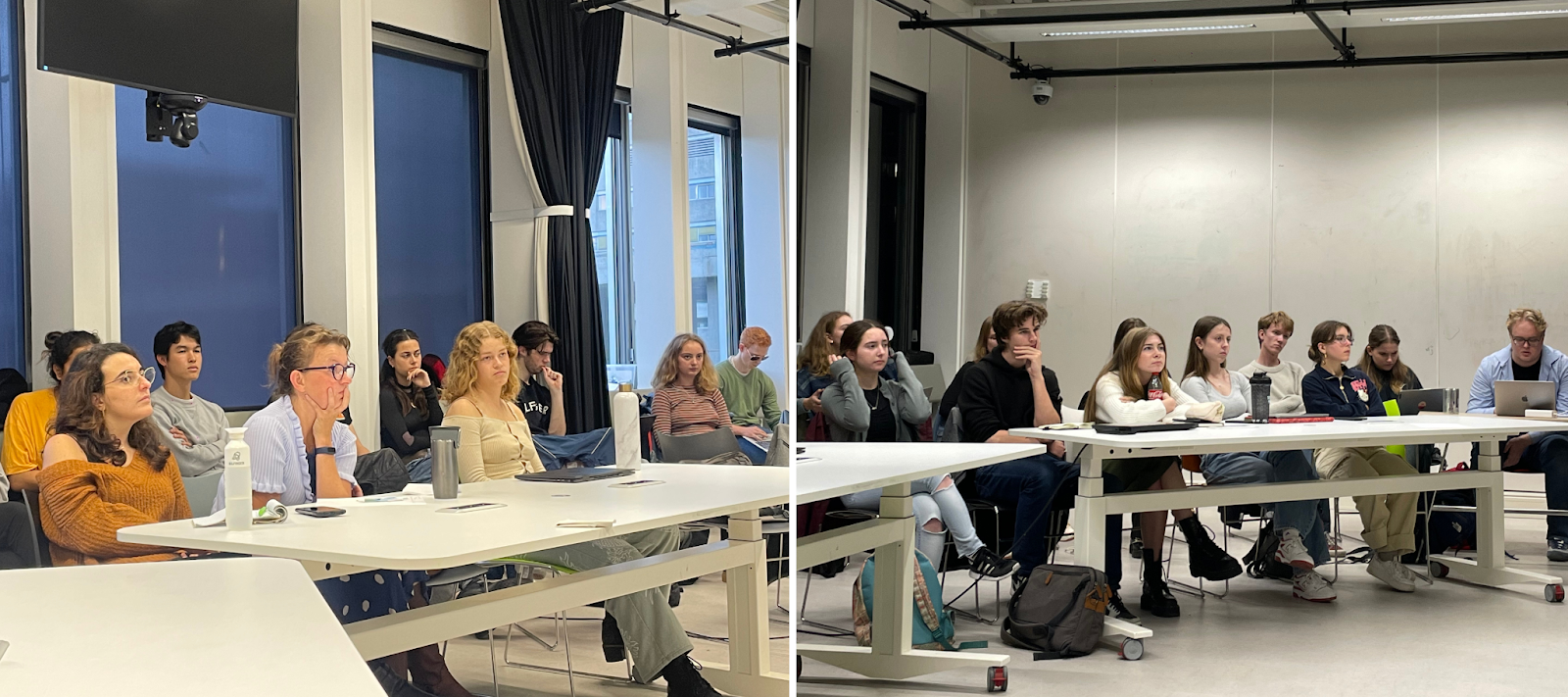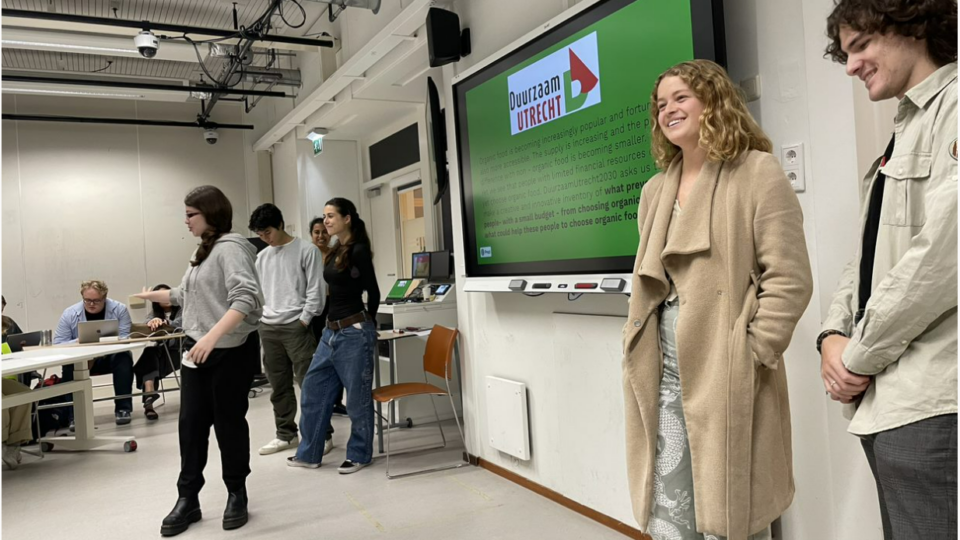The evening of the 17th of October was dedicated to a Frame Boards session, which was our first look at the groups’ plans to tackle their assigned challenges, and for the groups to get external feedback on their plans. With this Dragons’ Den a month away, this is a crucial step in the design process for the students to be able to identify the strengths and weaknesses of their proposals and chart a course for further development.
We checked in with the question “How do you feel about your best idea?”, perhaps not the smallest question and naturally quite confronting at this stage in the process. Some answers were the classic “good” and “great”, others more expressive along the lines of “inspiring”, “optimistic”, “engaging”, and there was the occasional, honest “doubtful”. Then, it was time for the fun to get started.
In turns, the groups presented their challenge and three different frame boards on how they plan to tackle it. This year’s Da Vinci Project showcased a remarkable diversity of challenges, reflecting the wide-ranging interests and needs of stakeholders across different industries. Each challenge, assigned to one of the six groups of students, brought its own unique set of priorities and complexities. Most students remarked that in the process of developing their proposals, they realised their problems were often more multifaceted than they came across at first glance. Most proposals were well thought-through, and tailored to the specific goals and constraints of their assigned problem. They highlighted the innovative, strategic, and ‘out of the box’ thinking that the Da Vinci Project aims to foster, as well as showcasing the students’ ability to apply design thinking principles to complex, real-world sustainability issues.

Afterwards, the audience, consisting of other students and the teaching staff, had the opportunity to discuss the presented ideas and give crucial feedback to the groups. Many fresh perspectives were offered, giving the groups even more leads to refine their ideas with. Of course, although all the problems are different, they do have commonalities, so this was the perfect space for the cross-pollination of ideas to see them bloom in future iterations.

With this checkpoint down, the groups will move forward in their design process, and the insights gained from this Frame Boards session will undoubtedly play a crucial role in shaping their prototypes. After all, the Frame Boards session also served to prepare the students for the Dragons’ Den, where their prototypes will be presented in front of not just their peers and teaching staff, but also all stakeholders. We hope to see refined prototypes and first iterations of these fantastic ideas at the Dragons’ Den.
This article was written by Michelle Than, Da Vinci Project 2024-2025 student

